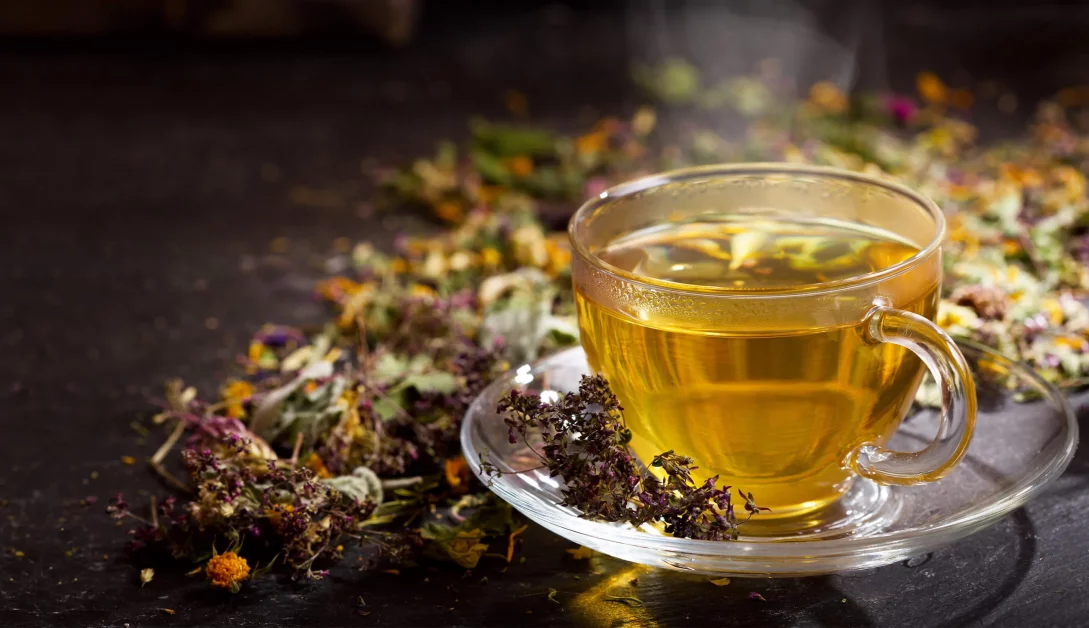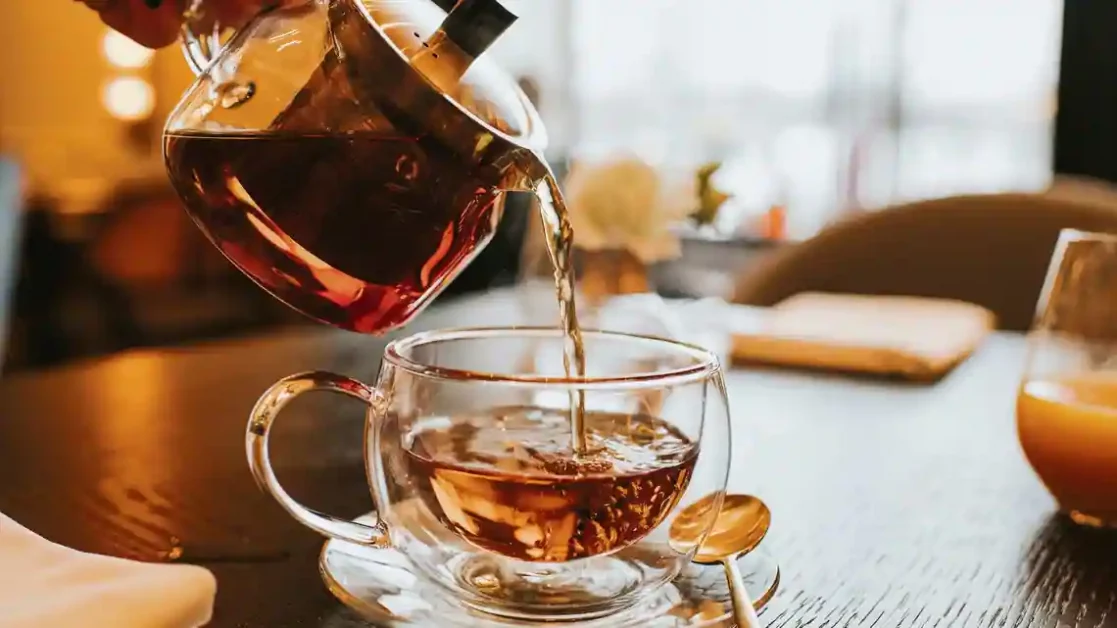According to a significant study, tea can be a beneficial component of a balanced diet and may even increase one’s likelihood of living longer than those who don’t.
Tea includes beneficial components that are believed to lessen inflammation. Green tea is popular in China and Japan, where earlier studies hinted at potential health advantages. The good news is now extended to black tea, a staple beverage in the United Kingdom.
There is plenty of data to support the claim that regularly consuming tea can improve your health over the long term, even if some varieties offer greater health benefits than others.
Start the kettle because we’re about to reveal some of the main advantages included in the most often consumed teas worldwide.

Herbal tea benefits
Also known as tisanes, are quite similar to white teas but also include a mixture of herbs, spices, fruits, or other plants. Herbal teas are known for their relaxing effects because they don’t contain caffeine.
Peppermint – Contains menthol, which can soothe an upset stomach and serve as a cure for constipation, irritable bowel syndrome, and motion sickness. This tea variety also offers pain relief from tension headaches and migraines.
Ginger – Helps to fight against morning sickness, can be used to treat chronic indigestion, and helps to relieve joint pain caused by osteoarthritis.
Hibiscus – Lowers blood pressure and fat levels, improves overall liver health, can starve off cravings for unhealthy sweets, and may prevent the formation of kidney stones.
Green tea benefits
Green tea comes from China, where the leaves are heated up and processed through roasting or pan-firing, and from Japan, where the leaves are more frequently steamed.
It has a particularly high concentration of flavonoids, which can improve heart health by lowering harmful cholesterol and blood clotting. According to studies, this kind of tea can also decrease triglycerides, cholesterol, and blood pressure.
Green tea may have an effect on malignancies of the liver, breast, prostate, and colon, according to research. This particular tea variety has also demonstrated anti-inflammatory properties, which support healthy, clear skin.
Matcha, a type of green tea, has gained popularity recently. The entire leaves of tea bushes grown in the shadow are used to make matcha, an extremely fine, premium green tea powder.
Subscribe to our YouTube channel and catch your favorite Switch TV shows
Black tea benefits
The same plant that is used to produce green tea, Camellia sinensis, also produces black tea. Black tea, on the other hand, has a darker color and fuller flavor since the leaves are dried and fermented.
Black tea contains caffeine, unlike many other types, therefore it’s vital to limit your consumption. If you do make yourself a cup of black tea, you gain the advantages of flavonoids that reduce inflammation and promote a strong immune system.
However, in order to take advantage of black tea’s health benefits, you don’t only have to drink it. To ease pain and lessen swelling, it can be heated, cooled, and then used for small wounds, scrapes, and bruises. Inflammation brought on by skin rashes and ailments like poison ivy can also be reduced with the use of a black tea soak.
White tea benefits
White tea is made from the Camellia sinensis plant, which is indigenous to China and India and is known for having a delicate flavor. The least processed tea kind is this one.
Due to its strong antioxidant content, research suggests it may be the best tea for preventing many types of cancer. Since white tea has a high concentration of fluoride, catechins, and tannins that strengthen teeth, fight plaque, and increase their resistance to acid and sugar, it may also be beneficial for your oral health.
This kind also has the lowest caffeine content, making it a wise choice for tea drinkers who prefer to avoid or consume little to no caffeine.
Teas to Avoid
While a majority of teas are beneficial for your health, you may want to steer clear of these varieties:
Detox teas are made for fat diets that suggest you will quickly lose weight. These teas often come laced with laxatives that can be harmful to your health.
Fancy tea lattes and drinks from your favorite chain store. While some of these drinks, such as a green tea latte, may appear healthy, they are loaded with sugar.
Trendy bubble teas are also loaded with sugar, calories, and carbs, and have little to no nutritional value.
Herbal teas may potentially trigger allergies. Many herbal teas contain different types of fruits, herbs, spices, and flowers that some people are allergic to. If you have allergies, always read the ingredients on the package before you consume a new herbal tea.
















